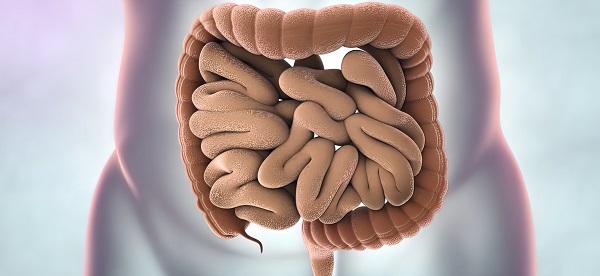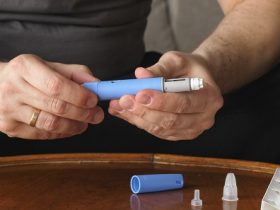At the recent Pri-Med East Conference, held in Boston, Philip Schoenfeld, MD, MSEd, MSc, Chief (Emeritus) Gastroenterology Section, John D. Dingell VA Medical Center Detroit, MI, gave an informative talk where he outlined the top 10 guideline recommendations for treatment of Irritable Bowel Syndrome (IBS) and Chronic Idiopathic Constipation (CIC).
The objectives of this talk were to: 1) to explain the GRADE methodology and intended application to patient care, 2) to utilize guideline recommendations to obtain suitable diagnostic tests and differentiate various fecal disorders using the digital rectal exam, and 3) to utilize guideline recommendations to treat irritable bowel syndrome (IBS) and chronic idiopathic constipation (CIC) patients with evidence-based therapies.
Dr. Schoenfeld introduced the Grading of Recommendations, Assessment, Development, and Evaluation (GRADE) methodology, a formal system for rating the quality of evidence and strength of recommendations in clinical practice guidelines. GRADE does not exclude clinical judgment, and the strength of the recommendation is purely based on the quality of evidence and risk-benefit assessment. Recommendations are designated “strong” or “conditional/weak.” The strong recommendation signifies that the evidence is high quality and the desirable effects (e.g., magnitude of benefit) outweigh any undesirable effects (e.g., side effects, cost, patient preferences). In contrast, Conditional or weak recommendation signifies that evidence may be low quality, benefits are small, potential side effects are common/severe, or costs are high.
First, when a patient present with the symptoms of IBS or CIC, the clinician should consider performing a digital rectal exam which may give more evidence about anal fissure, external hemorrhoids, and dyssynergic defecation. It is also important to educating the patients about the basics of IBS and CIC to raise awareness.
Do not misdiagnose Crohn’s disease.
Recommendation 3:
Use guanylate cyclase-C agonists such as linaclotide (Linzess®) and plecanatide (Trulance®) for irritable bowel syndrome with Constipation (IBS-C) and CIC. It’s the only treatment in IBS guidelines with a strong recommendation based on high-quality evidence and is FDA-approved. Both are minimally absorbed, and the only side effect is diarrhea. Linaclotide decreases overall abdominal symptoms (bloating, pain, discomfort) in IBS-C. Studies have reported that the proportion of abdominal symptom responders approximately doubles in the linaclotide group (34% vs. 18.5%).
Recommendation 4:
For Chronic Idiopathic Constipation (CIC), do not prescribe stool softeners, such as docusate sodium (Colace®) or docusate calcium (Surfak®). These medications have reported no significant differences compared with a placebo in randomized controlled trials (RCTs) of CIC patients.
Recommendation 5:
Since CIC is a chronic condition, long-term daily treatment usage is appropriate.
Medications such as linaclotide (Linzess®), plecanatide (Trulance®), lubiprostone (Amitiza®), and prucalopride (Motegrity®) are FDA-approved for CIC. Although osmotic laxatives, such as PEG-3350 (MiraLax ®), and stimulant laxatives, such as bisacodyl (Dulcolax®), are FDA-approved for the treatment of occasional constipation, however, studies have observed no harm in their long-term usage.
Recommendation 6:
Suggest using peppermint oil capsules (Conditional recommendation, low-quality evidence). Suggest against using antispasmodics, including dicyclomine (Bentyl®) and hyoscyamine (Levsin®) (Conditional recommendation, low-quality evidence).
In very small RCTs, loperamide improved stool frequency and consistency; however, it didn’t improve the abdominal discomfort compared to the placebo. Suggest against using bile acid sequestrants for irritable bowel syndrome with diarrhea (IBS-D) (Conditional recommendation, very low-quality evidence).
Recommendation 7:
Step-up Therapy for treating IBS-D
Healthcare providers can also consider Step-up Therapy for treating IBS-D. First, initiate a low FODMAP diet and loperamide (Imodium®), peppermint oil capsules (100-200 mg). If the initial response is insignificant, then consider rifaximin (Xifaxan®) if bloating is the primary symptom, otherwise consider eluxadoline (Viberzi®) in case fecal urgency is the most concerning symptom and the patient has intact gall bladder, or consider tricyclic antidepressant, like nortriptyline (Pamelor®) in case chronic abdominal discomfort is the predominant symptom.
Recommendation 8:
Avoid recommending probiotics as they have yet to be shown effective for IBS in well-designed RCTs (conditional recommendation, very low-quality evidence).
“We recommend the use of probiotics only in the context of a clinical trial.” — AGA Guideline
“We suggest against probiotics for the treatment of global IBS symptoms.” — ACG Guideline
Recommendation 9:
Limited trial of a Low FODMAP diet
The healthcare provider should suggest a limited trial of a Low fermentable-oligosaccharides- -disaccharides-monosaccharides and polyols (FODMAP) diet to improve the global IBS symptoms (conditional recommendation, low-quality evidence). A Low FODMAP diet means minimizing gluten, lactose-containing dairy, most leafy green vegetables, and some fruits and maximizing lean proteins (e.g., salmon, fish, chicken), non-lactose dairy (e.g., almond milk), nuts/seeds, selected fruits, and vegetables. It is suggested that the patients should only stay on a strict low FODMAP diet for 4-6 weeks. Then, small amounts of medium FODMAP foods should be added back under the dietitian’s guidance.
Recommendation 10:
The patient should be referred to a gastrointestinal (GI) motility specialist if possible. A multidisciplinary team approach is preferable, which includes gastroenterologists, dietitians, GI psychologists, a specialized manometry lab, a colorectal surgeon, and biofeedback-trained physical therapists.







